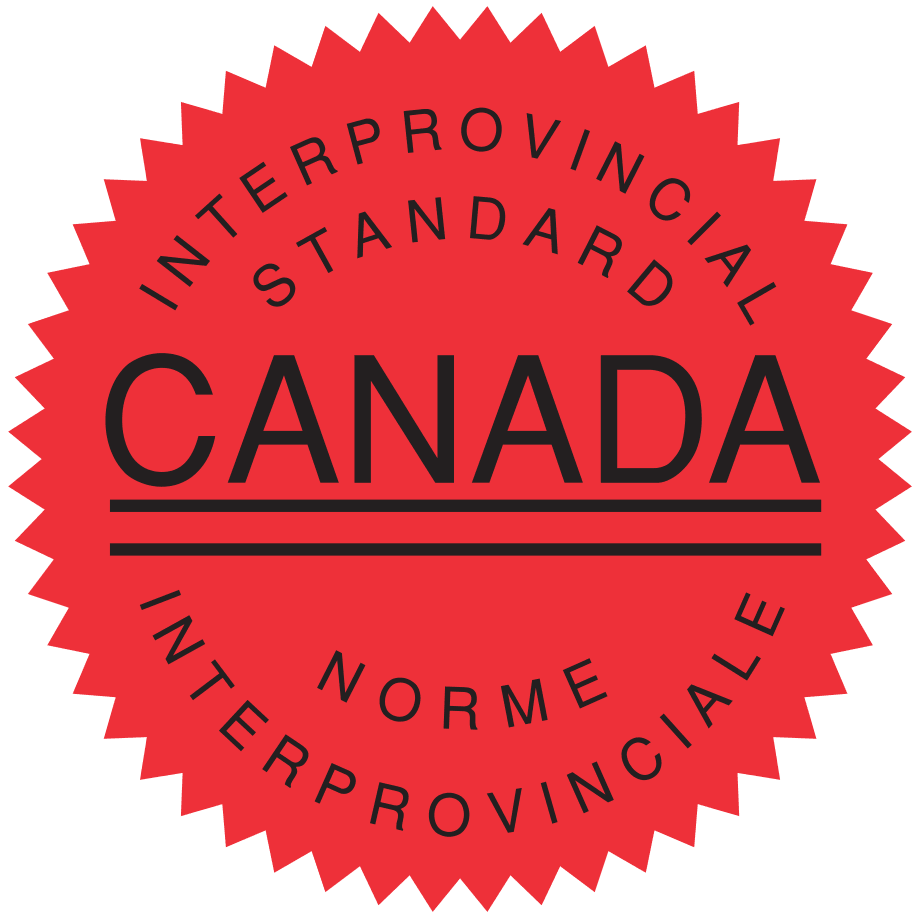
Red Seal
A perspective on the certifications, licenses, and affiliations that define professionalism in roofing.
Introduction
In roofing and construction alike, craftsmanship is often only as reliable as the qualifications behind it. For homeowners seeking roof work, the contractor’s credentials, or lack thereof, can be a telling sign—they are typically assurances of safety, quality, and accountability. A contractor’s established credentials often form the framework of trust between parties.
I won't go into great detail on each and every credential available, however I will share some knowledge based upon my experience attaining and pursuing multiple highly regarded credentials.
The synopsis is that the majority of qualified and expert roofing contractors are more then capable of attaining most if not all major credentials. Whether a contractor has a third party credentials or not can be broken down into a few factors.
- The contractor simply hasn't bothered to attain them.
- The contractor sees no value in having them, since often a highly skilled contractor could educate the people awarding the credentials.
- The contractor is not able to obtain them, they don't meet the requirements or have the skills & knowledge.
- The contractor doesn't have the connections required.
Usually by the time you gain access to a credential you've already far surpassed it's level of merit and skills required to have been awarded it. The credentials can then seem to hold no value as your level of understanding is beyond it's requirements of achievement.
Some are better then others, some hold value, some are awarded based on politics and who you know, some hold no merit what so ever.
At the end of the day having credentials shows a contractors commitment to customer satisfaction and pursuit of excellence, regardless if the credentials are of any practical use. They work as basically a third party verification system, or social proof if you will.
Quick Tip: Always verify, never assume. A credentialed contractor should readily provide documentation upon request.
Licensing & Regulatory Requirements
Priority: Legitimacy begins with licensing.
Most provinces and states require roofing contractors to hold a valid business or trade license. Licensing confirms that the contractor is legally authorized to operate and compliant with local building codes.
Checklist:
Active business license or registration
Trade-specific roofing license (where applicable)
Compliance with local building regulations
- Manufacturer certificates
- Other trade specific organizations
- Awards and merits
Insurance Coverage
Visual Cue: Proof of liability and workers’ compensation.
Insurance is a compenent of proper credentials, it protects both homeowner and contractor. General liability insurance covers property damage, while workers’ compensation safeguards against on-site injury claims. See: The Insurance Debate: Weighing the Validity of Roofing and Workers’ Compensation Coverage
Safety tip: If your contractor does not carry valid insurance policies, make sure there are written agreements in place that release you from liability in event of accidents.
Manufacturer Certifications
Note: Proof of technical mastery.
Leading shingle and roofing manufacturers award certifications to contractors who undergo training and meet installation standards. These credentials often unlock extended material warranties and more extensive training.
Examples:
GAF Master Elite® Contractor – Top-tier certification held by less than 2% of roofing contractors in North America.
CertainTeed SELECT ShingleMaster™ – Advanced training with extended warranty privileges.
Owens Corning Preferred Contractor – Recognized for consistent quality and product knowledge.
Trade Association Memberships
Principle: A commitment to industry standards.
Membership in professional associations signals ongoing education, adherence to ethics, and access to evolving best practices.
Examples:
NRCA (National Roofing Contractors Association)
CRCA (Canadian Roofing Contractors Association)
Local and regional building trade associations
Insight: Association membership reflects a contractor’s commitment to community and professional growth.
Training & Safety Certifications
Visual Cue: Documented safety and skills training.
Roofing is inherently hazardous. Contractors with OSHA (Occupational Safety and Health Administration) training in the U.S. or COR/WHMIS certification in Canada demonstrate a dedication to worker and homeowner safety.
It's important your Roofing Contractor and it's employees are trained and up to date on safety practices for more then the obvious safety reasons.
- It obsolves you from responsibility for their safety as they are trained and certified.
- An accident or safety violation on your project is likely to shut the job down until all safety protocols observed and or investigations complete. This can be excpetionally problematic if your roof is removed and bad weather is in the immediate forecast. Shutdowns for safety violations can last from hours to days to weeks.
Warranties & Written Guarantees
Consideration: A credential of accountability.
Though not a formal certificate, a written workmanship warranty is a contractor’s most personal credential—a promise that their work will endure. Contractors with strong reputations often back their labor with multi-year guarantees.
Conclusion
Credentials transform roofing contractors from labor providers into trusted professionals. Licensing, insurance, manufacturer certifications, association memberships, safety training, and workmanship warranties each reinforce reliability. For homeowners, asking to verify these credentials is not a burden on us, we're often proud to showcase the effort we've spent to attain them so make sure you ask—it is the proper due diligence.
Final Note: In roofing, credentials are the blueprint of trust. While not necessarily the end all be all, can demonstrate a commitment to excellence. Choose the contractor whose qualifications relfect their commitment to their craft.




